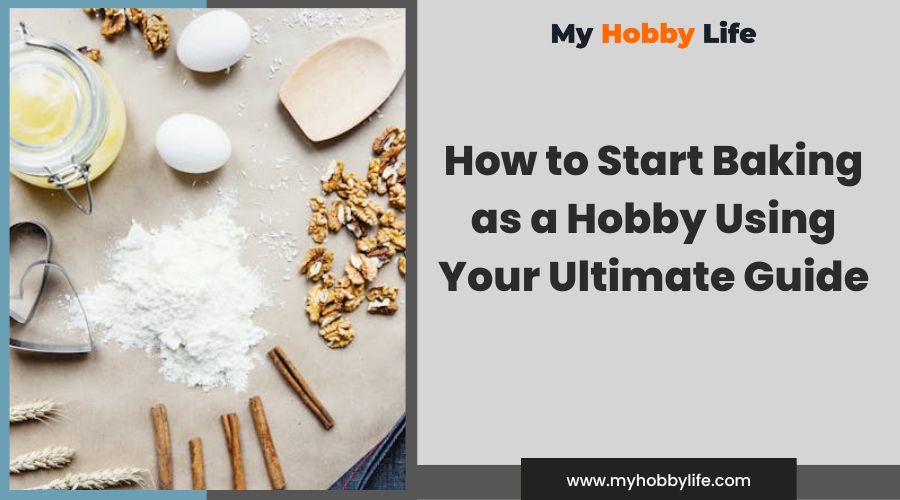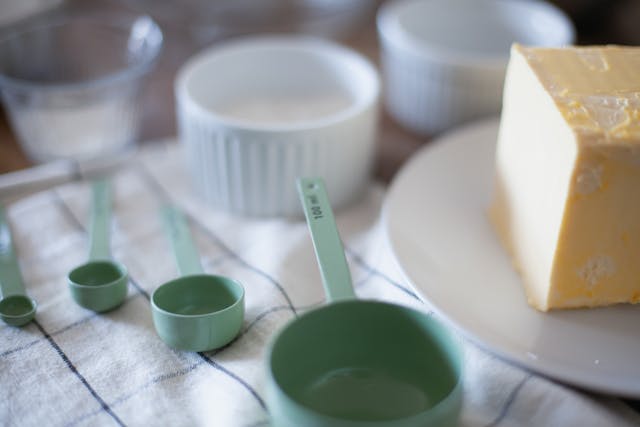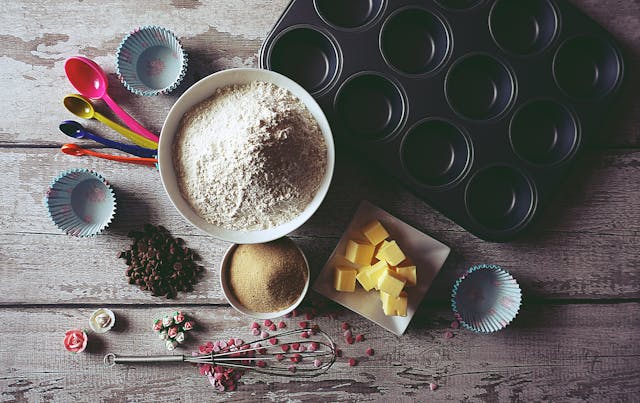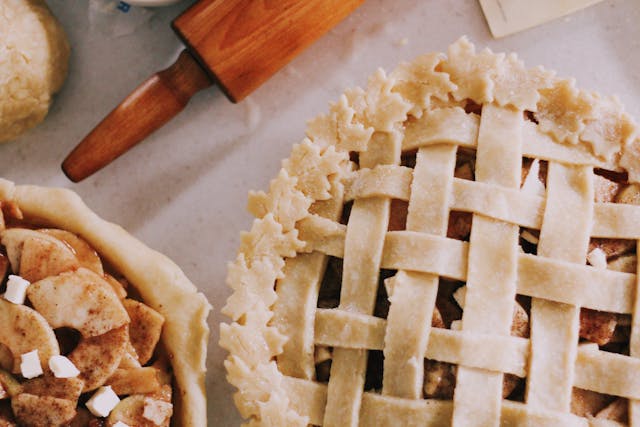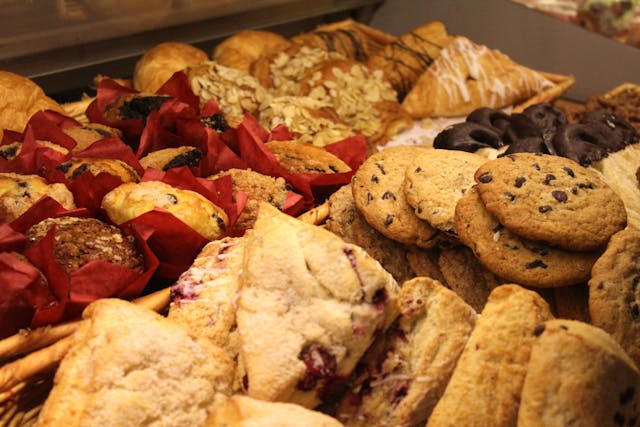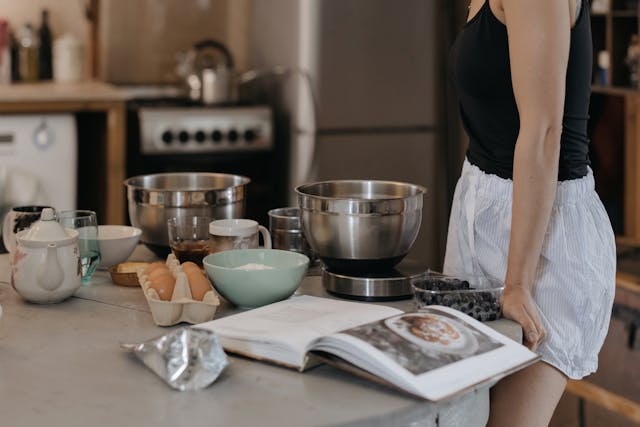Baking as a hobby offers both a satisfying creative outlet and the delicious rewards of homemade treats. It is a pursuit that marries precision with artistry—where a handful of simple ingredients can be transformed into an array of confections like fluffy cakes, aromatic breads, and delicate pastries. For those looking to learn baking, it’s important to start with a solid foundation that includes an understanding of key techniques and the role of each ingredient.
Equipping oneself with the basic tools and equipment is the first step in the journey of baking. A reliable oven, mixing tools, measuring cups, and baking pans set the stage for success. Beginners can build their skills and confidence by starting with simple recipes. This gradual approach allows new bakers to familiarize themselves with the baking process, learn how to measure ingredients correctly, and recognize the significance of recipe precision.
As hobbyists grow more accustomed to the baking basics, they can explore more complex recipes and develop their palate for quality ingredients. Flour, sugar, and eggs are the backbone of many baked goods, and choosing the right type can enhance the flavor and texture of the final product. The learning curve in baking is steep but rewarding, offering endless opportunities to refine techniques and delight in creating something from scratch.
Getting Started with Baking
Embarking on a baking journey begins with grasping the fundamentals and equipping oneself with the necessary tools and ingredients. Understanding key techniques and preparation safeguards ensures a fulfilling baking experience.
Understanding Baking Fundamentals
Baking is a science that relies on precision and understanding of how ingredients interact. Flour, sugar, butter, and eggs are foundational elements in baking, each contributing to structure, flavor, texture, and richness. Baking powder, baking soda, and yeast serve as leavening agents to give baked goods their rise. Mastering the balance of these ingredients is crucial for successful outcomes.
Choosing the Right Equipment
When selecting baking equipment, one should focus on both quality and necessity. Essential items include:
- Measuring Tools: Set of measuring cups and spoons.
- Mixing Bowls: A variety of sizes for different stages of preparation.
- Baking Pans and Sheets: Assorted shapes and sizes for various recipes.
- Mixer: A stand mixer or hand mixer for ease in combining ingredients.
- Utensils: Spatula, whisk, and a sturdy wooden spoon for mixing.
- Oven: A reliable calibrated oven for consistent baking results.
Essential Baking Ingredients
The quintessential baking ingredients that one should always have on hand include:
- Flour: All-purpose or specialty flours for structure.
- Sugar: Adds sweetness and affects the texture.
- Butter: For richness and flavor.
- Eggs: Bind ingredients and introduce air when whipped.
- Leaveners: Baking powder, baking soda, and yeast to ensure rise.
- Flavor enhancers: Vanilla extract, cocoa powder, and salt to enhance taste.
Decoding the Baking Process
The baking process involves several key steps that one should adhere to:
- Measuring Accurately: Ingredients should be measured meticulously.
- Preheating the Oven: Essential for a good start to baking.
- Mixing Techniques: Understanding when to fold, beat, or whisk.
- Timing: Adhering to prescribed oven times to avoid under or overbaking.
Safety and Preparation Tips
Safety and preparation should not be overlooked:
- Always preheat the oven to the required temperature before baking.
- Use non-stick spray or parchment paper to prepare pans.
- Never leave the oven unattended while in use.
- Keep a clean workspace and practice patience; baking is an art that cannot be rushed.
Developing Baking Skills
To embark on a baking hobby, one needs to focus on honing fundamental techniques and understanding the science of ingredients and measurements. Developing proficiency can greatly enhance the quality of baked goods and overall enjoyment of the craft.
Basic Techniques and Methods
The foundation of baking lies in mastering basic techniques such as mixing, whisking, kneading, and using a rolling pin correctly. These actions affect the texture and structure of your baked goods. For instance, creaming butter and sugar properly introduces air into the mixture, resulting in lighter cakes and cookies.
Practicing Precision in Measurements
Accuracy is crucial in baking. Using measuring cups and spoons is good, but for ultimate precision, a kitchen scale is recommended. Weigh your ingredients to ensure consistency in your recipes. Remember, even a small deviation can lead to major differences in the end product.
- Dry ingredients: Use cups and spoons after sifting with a sieve.
- Wet ingredients: Clear measuring cups can help to check the level at eye height.
Exploring Different Types of Baked Goods
Venture into making a variety of baked goods such as cookies, cakes, bread, muffins, cupcakes, pies, brownies, and quick breads. Each type requires specific ingredients and baking times, providing practical experience in managing different doughs and batters.
Perfecting Recipes Over Time
It’s about practice and patience; repeat recipes to refine your skills. Make note of any substitutions or spices you add, and adjust baking times as needed. Keep track of small changes to flavors and textures to achieve your desired result.
- Cookies: May require less time than you think; watch for a golden edge.
- Cakes: Test doneness by inserting a skewer and ensure it comes out clean.
Troubleshooting Common Baking Problems
Learn to troubleshoot issues like overmixing, resulting in tough baked goods, or crumbs making your icing gritty. Practice cracking eggs cleanly to avoid shell fragments. After baking, allow your creations to cool down adequately before storage or decoration to avoid sogginess.
- Overmixed batter? Next time, mix just until ingredients are combined.
- Cracking cakes? Ensure even oven temperature and avoid opening the oven door frequently.
Mastering Baking Recipes
Mastering baking recipes involves understanding different techniques and ingredients for creating a variety of baked goods. From the precise measurements in cookies to the careful mixing of cake batters, each recipe requires specific steps to achieve the perfect texture and flavor.
Cookies and Bars Essentials
Cookies and bars are a fundamental aspect of baking. Start by preheating the oven to the recommended temperature, usually around 375°F (190°C) for cookies. Properly measure ingredients like butter, sugar, and flour to ensure consistency. Use a baking sheet lined with parchment paper for even baking. For uniquely shaped cookies, utilize cookie cutters after rolling out your dough to the necessary thickness.
The Art of Cake Baking
Cake baking is both an art and a precise science. Key ingredients include cake flour, sugar, eggs, butter, and leavening agents like baking powder and baking soda. Vanilla extract adds flavor, while appropriate frosting and layers contribute to the visual appeal and taste. Ensure ingredients are at room temperature for a smoothly mixed batter, and use techniques like creaming butter and sugar to incorporate air.
Creating Artisan Breads and Pastries
Bread and pastries require a thorough understanding of yeast and gluten development. Essential ingredients include flour, yeast, salt, and water. The process of kneading and rising is crucial for developing gluten, which gives bread its structure and texture. Proofing allows the dough to develop flavor and texture before it’s baked in the oven.
Delightful Pies and Tarts
Pies and tarts demand skill in preparing the perfect dough. For a flaky crust, keep all ingredients, especially butter, cold and handle the dough as little as possible. Fillings range from sweet fruit to savory custard. Use a rolling pin for an evenly rolled crust and blind bake if necessary to prevent a soggy bottom.
Homemade Muffins and Cupcakes
Muffins and cupcakes start with a batter made from flour, eggs, milk, and baking powder. Do not overmix, as this can lead to the development of gluten, making the final product dense. Fill the muffin or cupcake liners two-thirds full and bake until a toothpick inserted comes out clean.
Specialty and Dietary Baking
Specialty baking caters to specific dietary needs with gluten-free, vegan, or sugar-free recipes. Use substitutions like almond milk for dairy, flax eggs for eggs, and alternative flours for wheat flour. For example, a vegan cake recipe might use almond flour and baking powder as leavening agents and substitute butter with a dairy-free alternative. Each substitution should be carefully selected based on its properties and the desired outcome.
Advanced Baking Techniques
Moving beyond the basics, advanced bakers focus on honing their craft through meticulous attention to the art of decoration, savory recipe creation, flavor experimentation, and baking for special events. Mastery over these techniques sets the stage for impressive results.
Art of Decoration and Presentation
A baker’s skill is often measured by their finescale decoration and presentation. Mastering techniques such as piping, intricate icing, and the application of glaze or sprinkles can transform a simple cake into a work of art. One must know when to use a spatula for smooth frosting and when to switch to a piping bag for detailed work. It is essential to practice creating various textures and patterns for a visually stunning finish.
Savory Baking Adventures
Baking isn’t limited to sweet treats; savory baking opens a new dimension where cheeses, herbs, and spices mix into pastries and breads. Advanced bakers should try adding various cheeses into their bread for a rich, flavorful experience or folding herbs into dough for aromatic scones. Creating savory items like cheese-filled croissants or a rich, thick stew with a perfectly crusty bread topping demonstrates versatility in baking skills.
Experimenting with Flavors and Textures
Exploration of new flavors and textures is essential for any advanced baker. Combining spices like cinnamon with sweet vanilla, or using rich cocoa powder to enhance chocolate desserts can lead to surprising and delightful results. One should experiment with crunchiness, softness, and the incorporation of unexpected ingredients into classic recipes for a unique sensory experience.
Baking for Special Occasions
Baking becomes even more special when tailored for events and celebrations. Whether it’s a themed birthday cake or a delicately frosted gift for a friend, special occasions call for personalized decoration and themes. An advanced baker takes into account the event’s atmosphere, selecting appropriate flavors and decorations, such as creating a multi-tiered cake for a wedding or themed cupcakes for a baby shower.
By focusing on these techniques, bakers can elevate their craft and enjoy the creativity and precision that advanced baking requires.
Taking Baking Further
Once the foundations of baking are established, a baker may seek to take their hobby to the next level, focusing on growth, mastery of techniques, and potentially even turning their passion into profit. Joining communities, furthering education, and starting a small business are ways to expand the scope of this fulfilling hobby.
From Hobby to Passion
As individuals progress from baking basics to creating more intricate recipes from scratch, the hobby may burgeon into a deep-seated passion. They may find themselves investing in advanced equipment and spending more time perfecting their craft. Experimentation with flavors and developing original recipes can mark the transition from casual baking to dedicated practice.
Joining a Baking Community
Bakers can enhance their growth and learning by connecting with others who share their interest. Joining forums, participating in social media groups, and attending local workshops provide opportunities for sharing tips, tricks, and recipes. These communities often serve as a valuable support network, fostering improvement through collective knowledge.
Starting a Baking Side Business
Selling home-baked goods can transform a hobby into a source of income. Starting this small business involves understanding the basics of marketing, branding, and adhering to food safety regulations. Successful home bakers often begin by gifting their baked items, which can lead to word-of-mouth marketing and a growing customer base.
- Initial Steps for Entrepreneurs:
- Research local food regulations
- Develop a branding strategy
- Utilize social media for marketing
- Create a simple menu with signature items
Continuing Education and Learning
Education is key in the journey towards baking mastery. Bakers can enroll in courses, acquire certifications, and attend workshops to refine their skills and learn new techniques. Growth in the field of baking is often marked by a continuous appetite for learning, with many resources available both online and through culinary institutions.
- Opportunities for Education:
- Online courses from established culinary schools
- Workshops focusing on specific techniques
- Certifications in various areas of baking and pastry arts
Baking Resources
Accessing the right resources is essential for anyone beginning their journey in baking. They provide a wealth of information including recipes, techniques, and tips to ensure a successful baking experience.
Recommended Baking Books and Guides
Books:
- “The Baking Bible” by Rose Levy Beranbaum: A comprehensive guide offering recipes and techniques for bakers of all levels.
- “Flour Water Salt Yeast” by Ken Forkish: Ideal for bread-making enthusiasts, this book emphasizes on the nuances of artisanal bread baking.
Guides:
- “Joy of Cooking”: This kitchen staple covers a vast array of baking recipes and basic kitchen techniques.
- “Baking Illustrated”: Compiled by the experts at America’s Test Kitchen, this guide offers detailed instructions and explanations of the science behind baking.
Online Baking Communities and Forums
Communities:
- Reddit (/r/Baking): An online forum where bakers share their tips, recipes, and answer questions.
- CakeCentral: A community focused on cake decorating and confectionery arts with forums for sharing ideas and techniques.
Forums:
- The Fresh Loaf: A community for amateur artisan bakers and bread enthusiasts to exchange recipes and discuss techniques.
- BakeSpace: Both a forum and a recipe swap space, it’s a great spot for bakers to gather and share their experiences.
Useful Baking Apps and Tools
Apps:
- Kitchen Stories: Features various baking recipes complete with videos and step-by-step instructions.
- Timer+: Useful for keeping track of baking times for multiple dishes simultaneously.
Tools:
- Digital Scale: Ensures precise measuring of ingredients, which is crucial in baking.
- Oven Thermometer: To verify the oven’s temperature for perfectly baked goods, as internal temperatures can vary from the set temperature.
Frequently Asked Questions
In this section, enthusiasts will find answers to common queries that arise when embarking on the journey of baking as a hobby. These insights provide clarity and essential tips for newcomers to the craft of baking.
What are the essential tools every beginner baker should have?
A beginner baker should invest in quality basic equipment such as measuring cups and spoons, mixing bowls, a sturdy whisk, a silicone spatula, baking pans, a rolling pin, and a reliable oven. These tools lay the foundation for a wide range of baking projects.
What are the best resources for someone starting out with baking as a hobby?
For someone starting out, the best resources include easy-to-follow cookbooks, introductory baking workshops, online tutorial videos, and baking blogs with step-by-step instructions. Free online recipes can also be valuable, allowing beginners to practice and build their skills.
Can you learn to bake without professional classes, and if so, how?
One can indeed learn to bake without professional classes by utilizing online tutorials, attending community workshops, or following baking books and guides designed for beginners. Practice, patience, and learning from trial and error are key components of the learning process.
What are the first steps to take when learning to bake from scratch?
When learning to bake from scratch, one should begin by familiarizing themselves with basic baking techniques and terminology. Starting with simple recipes that require minimal ingredients or steps can help build confidence and foundational skills.
How can I incorporate my love for baking into my daily routine?
To incorporate baking into a daily routine, one can start by setting aside specific times for baking, experimenting with quick and easy recipes, or preparing parts of more complex recipes in advance. Baking can also be integrated into meal preparation.
What are some simple baking projects for a novice to start with?
Novice bakers can start with simple projects such as chocolate chip cookies, muffins, brownies, or a basic loaf of bread. These projects typically require fewer steps and ingredients, making them an ideal starting point for building baking skills.
